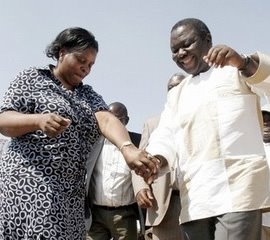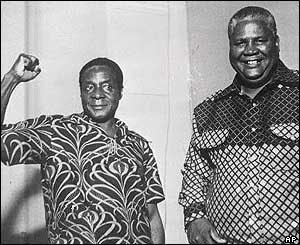Entrepreneurship, much of it attached to agriculture, will be critical to ensure economic growth, poverty reduction, and sustainable natural resource management in the world's least developed countries, especially in Africa. Access to improved agricultural technology, infrastructure, and output as well as factor markets will increase the returns and therefore encourage such investment. Assuring investors that they will be able to reap the returns from investing through secure property rights will be fundamental to increase land-related investment.
According to Di-Masi (2008) in his paper Defining Entrepreneurship, The earliest definition of entrepreneurship, dating from the eighteenth century, used it as an economic term describing the process of bearing the risk of buying at certain prices and selling at uncertain prices. Other, later commentators broadened the definition to include the concept of bringing together the factors of production. This definition led others to question whether there was any unique entrepreneurial function or whether it was simply a form of management. Later, writers including Schumpeter (1934) and later Drucker (1985) added the concept of 'creative destruction' or innovation to the definition of entrepreneurship. This innovation could be process innovation, market innovation, product innovation, factor innovation, and even organisational innovation. Vosloo (1994) later described entrepreneurship as involving the creation of new enterprises, exploring the environment, identifying opportunities for improvement, mobilising resources, implementing action and that the entrepreneur is the founder.
Entrepreneurship best flourishes in an environment that provides a favourable free enterprise atmosphere. One important characteristic of successful economies in Europe, America and South-East Asia is a free enterprise society underpinned by private property rights (Lau. J and Klan. L, 1990). Libercap (2008) states that Property rights include a variety of rights, including the right to exclude none-owners from access, the right to appropriate and use, and the right to sell or otherwise transfer the resources to others. Libercap further posits that property rights affect economic behaviour and performance in two ways, firstly by assigning ownership to valuable assets and designating who bears the rewards and costs of resources-use decision. Secondly, property rights structure incentives economic behaviour in society by allocating decision making authority. Libercap's proposition suggests that entrepreneurship is related to property rights.
In 1999 Zimbabwe experienced farm invasions by land hungry citizens, whose historical causes date back from the pre- independence era. This was later followed by the fast track land reform programme, which sought to fast track and formalise the settlement of the land hungry citizens. Prior the commercial agricultural sector was dominated by white commercial farmers whose majority had claim to the land through title deeds registered with the registrar of deeds. The dominant property rights system in commercial agriculture then included a variety of rights, including the right to use, rights to benefit rent, the right to exclude non-owners and the right to sell or transfer the property to a third party.
The land reform programme on the other hand guaranteed the beneficiaries the rights to use, a right to exclude none-owners and no right to sell or transfer the land to third parties and no right to benefit rent from the property. The rights were claimed through an offer letter or 99 year lease signed by the Minister responsible for Lands and land reform. The paradigm shift was that the Minister responsible for lands and land reform had the final right to benefit rent, transfer or sell the land. This shift meant the new farmers enjoyed lesser rights than their predecessors.
In a modern market economy, the monetary value of land emanates from its ability to sell or transfer it to a third party. The absence of the right to sell undermines the value of the land because the market is unable to allocate a monetary value to it. This explains why the offer letter is not acceptable as collateral security to providers of investment capital such as commercial banks and developmental institutions. Commercial agriculture is in no ways unique from other productive economic sectors the presents and absence of private property rights influences the farmer's entrepreneurship.
Property rights influences the economic behaviour of entrepreneurs because of its direct link to risk associated with the Minister withdrawing the offer letter or 1999 year lease for other reason as he or she might deem appropriate in the face of national interest. The risk is further worsened by a recent constitutional provision empowering the Minister to proceed without the owner of the designated land challenging the take over of the land in the courts of law;
…..3) The provisions of any law referred to in section 16(1) regulating the compulsory acquisition of land that is in force on the appointed day, and the provisions of section 18(1) and (9), shall not apply in relation to land referred to in subsection (2)(a) except for the purpose of determining any question related to the payment of compensation referred to in subsection (2)(b), that is to say, a person having any right or interest in the land—
(a) Shall not apply to a court to challenge the acquisition of the land by the State, and no court shall entertain any such challenge…
Constitutional of Zimbabwe Amendment (No 17) Act (2007)
…..3) The provisions of any law referred to in section 16(1) regulating the compulsory acquisition of land that is in force on the appointed day, and the provisions of section 18(1) and (9), shall not apply in relation to land referred to in subsection (2)(a) except for the purpose of determining any question related to the payment of compensation referred to in subsection (2)(b), that is to say, a person having any right or interest in the land—
(b) Shall not apply to a court to challenge the acquisition of the land by the State, and no court shall entertain any such challenge…
The enormous power wielded by government bureaucrats through the land allocations committees and the Minister increases uncertainty and risk in commercial agriculture. In particular any change of guard or a major shift in land ownership policy changes from the present government which masterminded the land reform. The matter at stake if Africa is to realise its 'dream' is to cultivate a land based economic model of moving away from excessive state based interventions to democratise the economic space. Zimbabwe is a compelling case on the fundamental importance of property rights.
Hillary Kundishora. He is a scholar in Strategic management.
@>>>>>PLEASE NOTE!!<<<<<@
1. THE VIDEO OF THE ARCHBISHOP OF YORK CUTTING UP HIS CLERICAL COLLAR HAS BEEN MOVED TO www.zimcrisis.blogspot.com 2. "HOW TO DO THE FINAL PUSH WITHOUT FIRING A SINGLE SHOT" HAS BEEN UPDATED WITH PART TWO. PLEASE CLICK HERE!!! 3. VIDEO OF LISBON ANTI-MUGABE DEMO POSTED AT www.zimfinalpush8.blogspot.com
################

www.zimdaily.com
Blog Archive
-
►
11
(12)
- ► November 2011 (6)
- ► October 2011 (1)
- ► August 2011 (4)
-
►
09
(7)
- ► February 2009 (6)
- ► January 2009 (1)
-
▼
08
(27)
- ► December 2008 (3)
- ► March 2008 (4)
- ► February 2008 (3)
- ► January 2008 (9)
-
►
07
(16)
- ► December 2007 (16)
Subscribe to:
Posts (Atom)
PLEASE CHECK THESE OUT!!!!!!
- "POLITICAL POVERTY.... IS IT IN THE MDC OR IN THE NGOs?" by T CHAMANYAWI.
- "THE NGO SHARKS THAT FEED ON THE ZIM CRISIS!" by TAMBANAVO CHAMANYAWI!!
- "ARTHUR MUTAMBARA...THE WORLD's LUCKIEST POLITICIAN!" by TAMBANAVO CHAMANYAWI!!!
- STATEMENT BY MDC PRESIDENT TSVANGIRAI ON THE DECISION TO JOIN ZANU-PF IN GOVERNMENT!!!
- REV HOVE'S PERSONAL APPEAL!!
- NDEBELE BROTHER GIVES VERY SAD STORY ABOUT "GUKURAHUNDI"!!!
- PHOTOS OF REV HOVE'S WOUNDS FROM BULLET WOUNDS AT SADC PRETORIA DEMO!!!
- "ARSONISTS ATTEMPT TO KILL MY FAMILY IN ZIM!" by Rev M S Hove.
- " I WISH NO MERRY XMAS TO NOBODY!" by Rev Mufaro Stig Hove!
- "BATTLE OF THE TWO ELLIOTS THAT NEVER WAS!" by ELLIOT PFEBVE!!!
- "PROPERTY RIGHTS AN AVENUE TO AGRICULTURAL DEVELOPMENT" by H KUNDISHORA!!!
- "MBEKI MISLEADING G8 ON ZIMBABWE!!!" by GARIKAI CHIMUKA!!!
- "WHAT ARE THE AFRICAN INTERESTS IN ZIMBABWE???" asks Hillary Kundishora.
- THE SA COMMUNIST PARTY ASKED ZANU-PF WHY THEIR "REVOLUTION" IS NOT ACCEPTED BY STRATEGIC SECTIONS OF ZIMBABWEANS!
- "The Brand Zimbabwe" by Hillary Kundishora.
- "Polokwane Congress Must Uphold Mandela Legacy" by Garikai Chimuka.
- "To What Extent Does Economic Strategy and Planning Reflect Kleptocracy?" by Hillary Kundishona.
- "HOW TO DO THE FINAL PUSH WITHOUT FIRING A SINGLE SHOT!" by Rev M S Hove.
- REV HOVE ASKED TO COMMENT ON ZIMBABWEANS ALLEGEDLY COMMITTING CRIMES IN SA!!!
- COMMENTS ON THE NEED FOR AN ARMED STRUGGLE!
- HOT DEBATE FOLLOWING: "THE SHARKS THAT FEED ON THE ZIM CRISIS!"
- "TIME IS RUNNING OUT FOR ZIMBABWE OPPOSITION" by Garikai Chimuka.
- "GENDER AND AGRICULTURAL DEVELOPMENT" by Hillary Kundishora.










